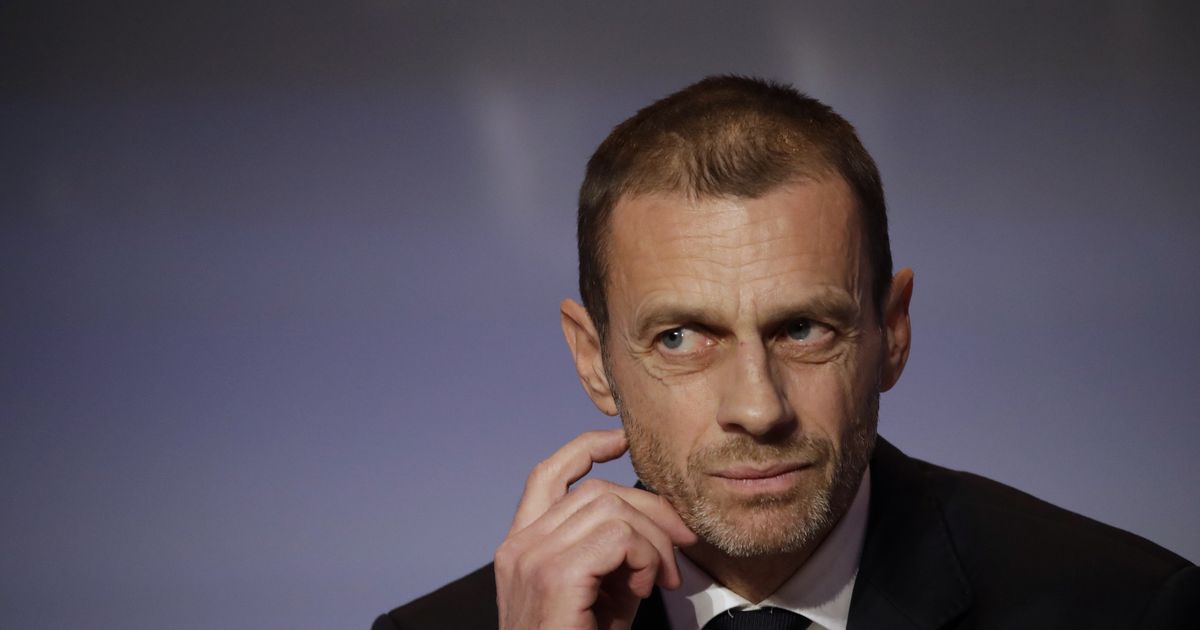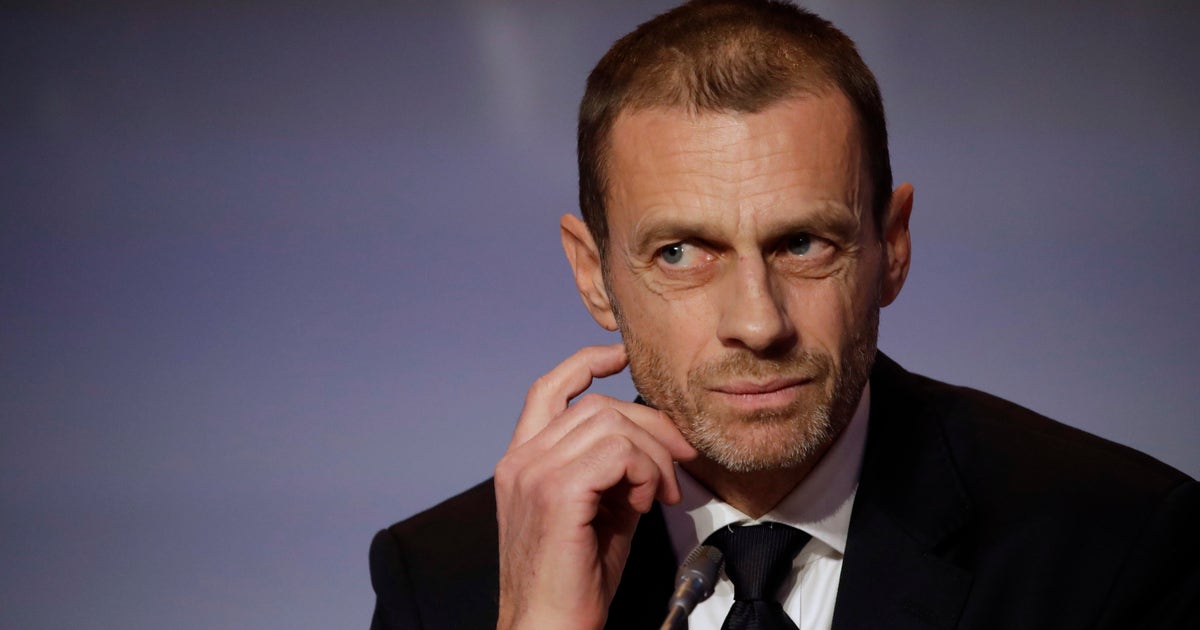UEFA head Ceferin says all ideas open for Champions League


BUDAPEST, Hungary (AP) — Amid rising tensions between European clubs and leagues over shaping the Champions League’s future, UEFA President Aleksander Ceferin insisted Friday all ideas are on the table and nothing is yet settled.
Ceferin hosted 55 UEFA member federations to share ideas for the format of the competition beginning in 2024 as part of a year-long process in which the European Club Association’s draft plan shaped the early debate.
Recent history suggests wealthy clubs get most of what they want. The veiled threat of forming a breakaway Super League has been useful leverage.
This time is different, said Ceferin, first elected in 2016 weeks after the last round of reforms favored clubs in the most influential countries.
“Why would we open the consultation process if we wouldn’t want to listen? That only brings problems,” Ceferin told The Associated Press.
Ceferin’s working relationship with Andrea Agnelli, the ECA chairman and president of Italian champion Juventus, has fueled concern at the European Leagues group that clubs will get the best deal this time.
“Nobody can influence us, for sure — only good arguments,” Ceferin said, adding “there is almost no pressure” on him from Agnelli and the ECA.
The Champions League format will almost certainly change in the 2024-25 season, despite the current version being popular and proven in a stream of wild elimination games since March.
“It’s the best … but it doesn’t mean it can’t go higher,” the Slovenian lawyer said, adding that there is “absolutely not” a need to be radical.
Here are some ideas in the mix after the 2 1/2-hour UEFA meeting Friday:
RETAINING PLACES
The outline of the Champions League shown to the 55 UEFA nations Friday — and to the leagues last week — mostly matches the proposal taken by clubs to UEFA headquarters in March to kick off the formal consultation period.
“They were constructive in the way they brought an idea on the table,” Ceferin said. “I said, ‘Fantastic, let’s discuss.’”
A controversial proposal was for 24 of the 32 teams in 2024-25 to keep their places the following season based on their group-stage placing. It would block the traditional entry paths by finishes in the domestic leagues.
If 24 retained places seem to be too many, the principle has gained support thanks to Ajax, which was one minute from reaching this season’s final until Tottenham’s stoppage-time winning goal last week.
“Everybody was excited about Ajax,” Ceferin said. “They showed that everything is possible.”
Even as a semifinalist and the champion of the Netherlands, Ajax will again enter the Champions League in the qualifying rounds next season and need to beat two opponents to get to the group stage.
Ceferin cited “the need for stability” for clubs like Ajax from mid-sized leagues with lower-value broadcast rights.
Should they invest heavily in the offseason while risking Champions League elimination in August?
Perhaps the semifinalists in 2024-25 will get guaranteed places in the next season’s group stage.
PROMOTION AND RELEGATION
Promotion and relegation between the Champions League and the second-tier Europa League will probably happen.
The current suggestion is for four Champions League teams to be demoted and replaced by Europa League semifinalists.
Teams would also move up and down between the Europa League and a third-tier competition that kicks off in 2021 with 32 teams.
EIGHT-TEAM GROUPS
Storied clubs want more Champions League games, to play each other more often and to drive up UEFA’s revenue, which funds more prize money.
Putting 32 teams into eight-team groups would guarantee 14 games each instead of six.
Ceferin said this depends on finding space in the crowded calendar. Reducing the size of national leagues would do that.
Belgium’s federation president, Gerard Linard, told the AP he prefers traditional four-team groups.
The idea could be sold as a way of driving Champions League revenue to subsidize the third-tier competition, which has less appeal in big TV markets.
THREE-TIER SYSTEM
The three tiers of UEFA competitions — in a split of 32-32-64 teams — looks likely to happen.
The expanded third tier could split into 16-team sections on a regional basis to limit travel and costs for teams and fans.
“Nobody is against that,” Ceferin said. “Of course, you have to finance that from the first tier.”
SHARING THE WEALTH
On Friday, the biggest nations focused on their teams’ access to the Champions League. Smaller ones were interested in solidarity payments filtering down, Ceferin said.
One new idea to share the wealth — and push back “populist” talk from the leagues — is requiring the likes of the English Premier League and Spain’s La Liga to pay back money from European TV rights deals to clubs in that country.
Romanian federation president Razvan Burleanu’s proposal is a kind of popularity tax on the biggest leagues.
“Nothing is coming back in my country,” Burleanu told the AP, referring to money Romanian broadcasters pay to screen league games from abroad. “This can be an idea to contribute to decreasing the gap between top-five leagues and the rest.”
Ceferin was enthusiastic. “All the five big leagues should contribute,” he said.









